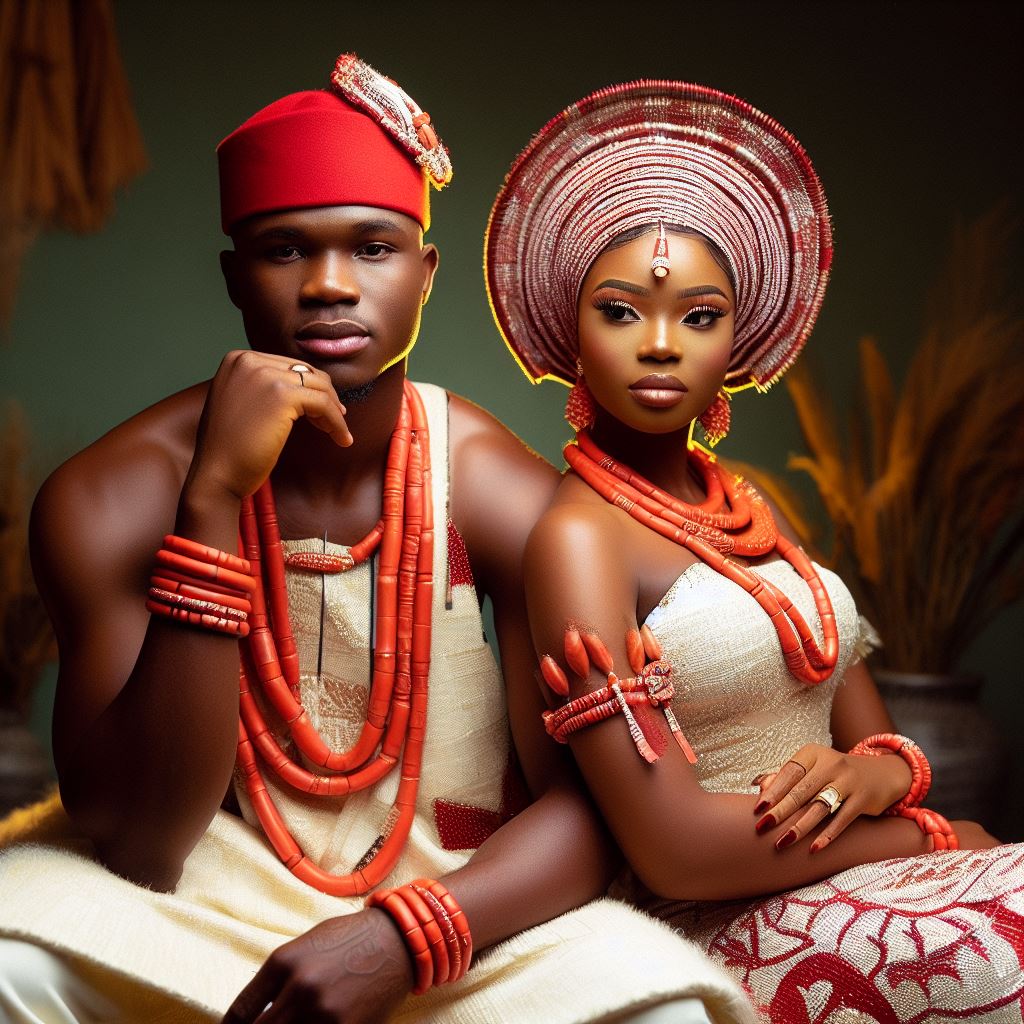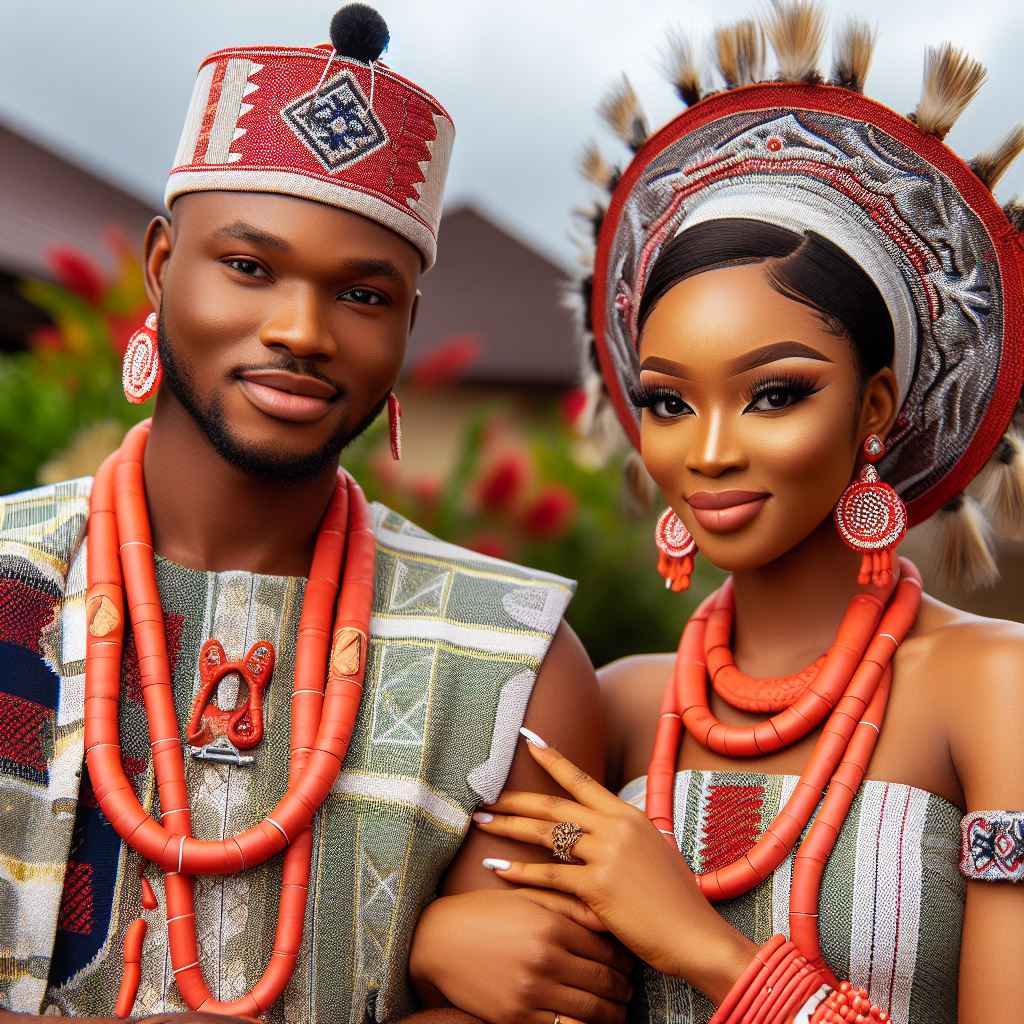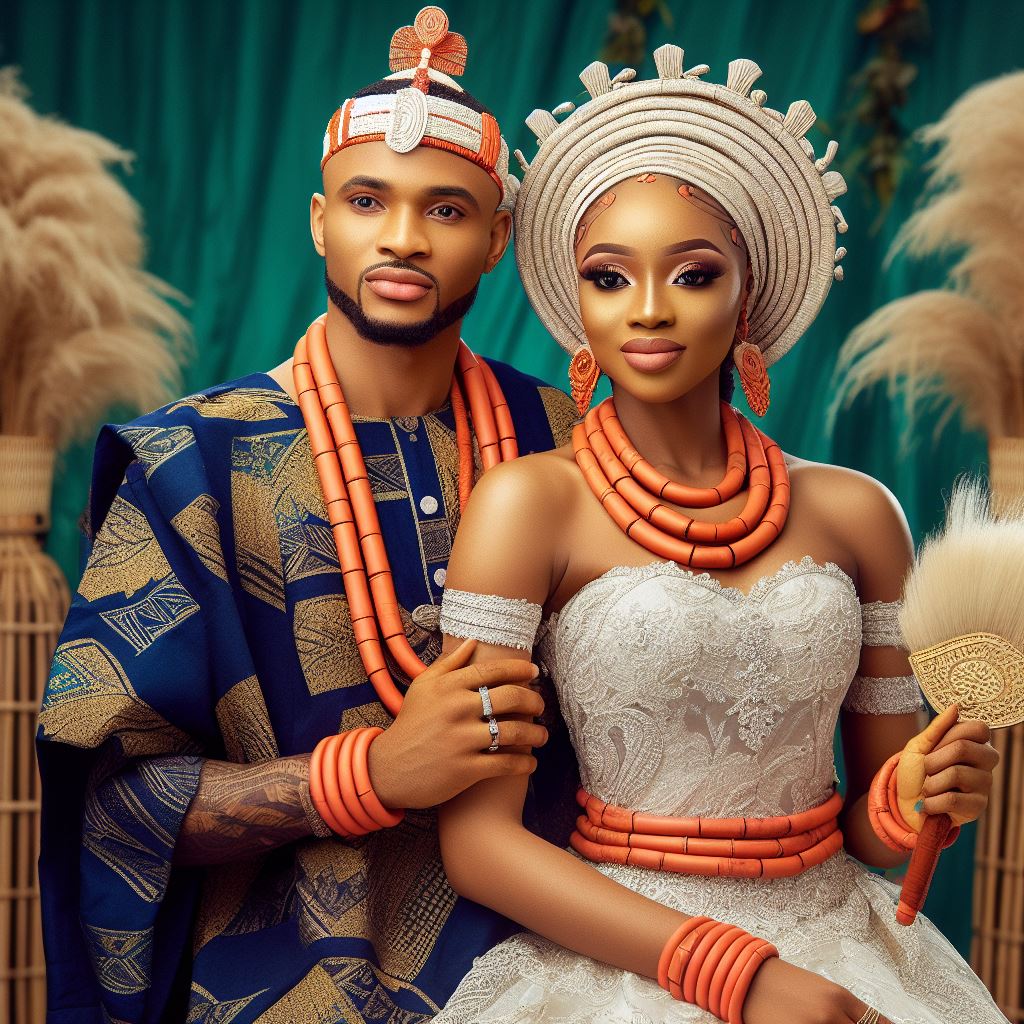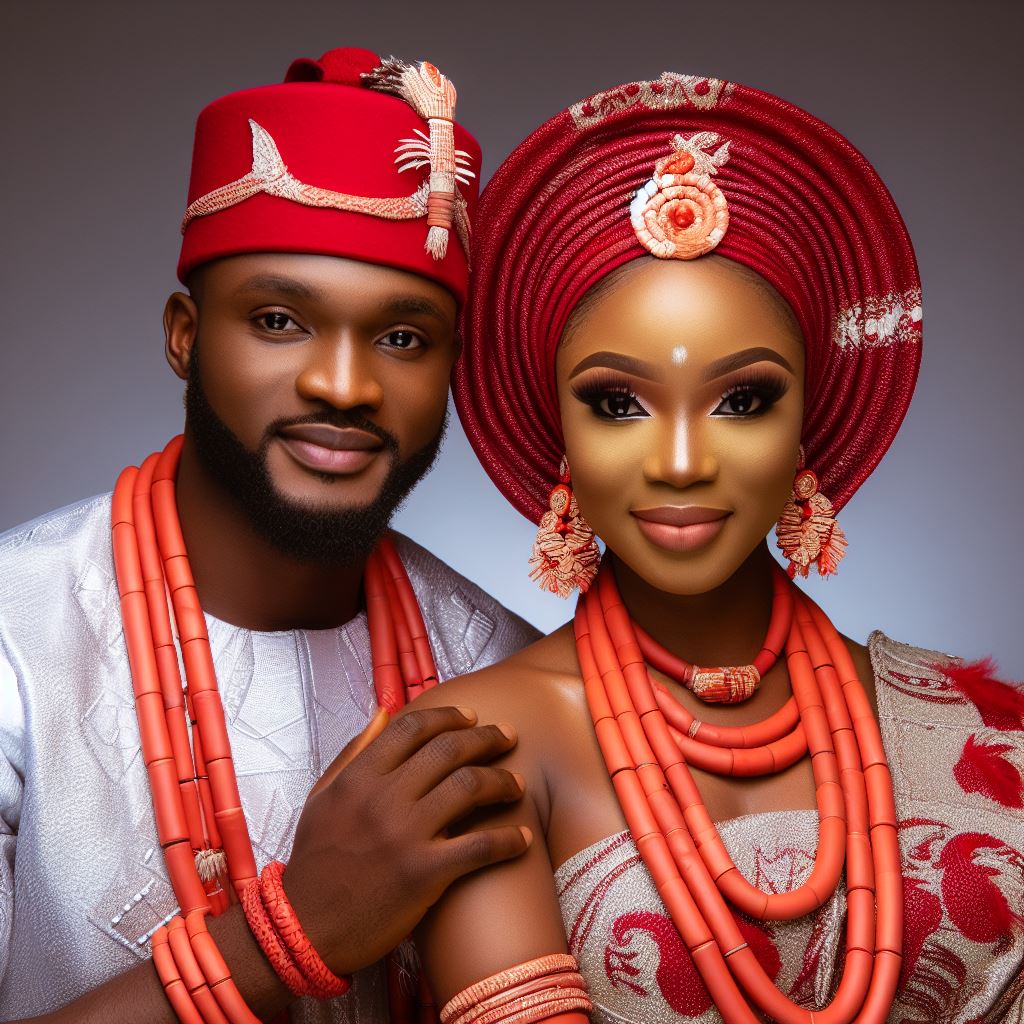Introduction
Let’s explore the cultural significance of marriage in Nigeria: A deep dive.
Marriage in Nigeria holds great cultural significance, representing the union of families and communities.
Marriage, the cornerstone of society, transcends its practical implications to become a vessel of profound cultural expression.
Nowhere is this more evident than in Nigeria, a nation steeped in a kaleidoscope of traditions, each weaving its own narrative into the grand tapestry of matrimonial unions.
This blog post aims to delve deeply into the cultural importance of marriage in Nigeria, exploring its traditions, practices, and symbolism.
In this exploration, we embark on a captivating journey into the heart of Nigerian marriage customs, unearthing the deep-seated beliefs, rituals, and symbolic gestures that underpin this sacred institution.
From the vibrant celebrations that mark unions to the enduring values they reflect, we navigate through a mosaic of customs that define not only a couple’s journey but also the very essence of community and identity in this diverse nation.
Join us as we navigate through this intricate web of practices, discovering the multifaceted cultural significance that marriage holds in Nigeria.
Traditional Nigerian Marriage Customs
In Nigeria, marriage is not just a union between two individuals; it is a significant social event that involves the entire community.
Traditional Nigerian marriage customs and rituals are deeply rooted in the country’s rich cultural heritage.
These customs play a crucial role in preserving the cultural identity and heritage of the Nigerian people.
The various traditional marriage customs and rituals in Nigeria
One of the most important traditional marriage customs in Nigeria is the payment of dowry.
The groom is expected to present gifts, including money, to the bride’s family as a gesture of appreciation and proof of his ability to take care of his wife.
This custom symbolizes respect and the willingness to honor traditions.
Another essential ritual is the traditional wedding ceremony, which is a vibrant and elaborate event filled with music, dance, and colorful attire.
The couple, dressed in traditional attire, undergoes various ceremonies, including the exchange of vows, blessings from elders, and the tying of ceremonial knots to signify unity.
The involvement of the extended family and community in traditional Nigerian marriages cannot be overstated.
These weddings bring relatives and friends together for the festivities, reinforcing the importance of community bonds and collective responsibility.
The entire process is seen as a way of uniting not just the couple but also their families and communities.
The importance of these customs in preserving cultural identity and heritage
Nigerian marriages also involve important cultural rituals that vary across the different ethnic groups in the country.
For example, in the Yoruba culture, the Kolanut ceremony is performed to seek the blessings of the gods.
The Igbo culture also has its unique customs, such as the Igba Nkwu ceremony, where the bride carries a cup of palm wine to her groom as a sign of submission.
These customs serve as a reminder of the cultural heritage that has been passed down from generation to generation.
They keep traditions alive, foster a sense of identity, and strengthen the bond between Nigerians and their roots.
Traditional Nigerian marriages are more than just a union of two individuals; they are a celebration of culture, family, and community.
Furthermore, traditional marriage customs play a significant role in establishing social connections and promoting unity within Nigerian communities.
They create a network of support and solidarity, as the extended family and community members actively participate in the various stages of the marriage process.
The role of extended family and community in traditional Nigerian marriages
The involvement of the extended family ensures that the couple receives the blessings and guidance of their elders, who are considered a source of wisdom and experience.
It also provides a support system for the couple, as they can rely on their family and community in times of need.
In short, traditional Nigerian marriage customs and rituals hold great cultural significance.
They not only preserve the country’s cultural identity and heritage but also strengthen the bond between families and communities.
These customs serve as a reminder of the importance of tradition, unity, and collective responsibility in Nigerian society.
Symbolism and Meaning in Nigerian Weddings
The symbolism embedded in Nigerian wedding ceremonies
Symbolism in Nigerian weddings plays a significant role in expressing cultural values and traditions.
Traditional attires worn by the bride and groom hold deep meaning and symbolize their heritage.
The colors chosen for the wedding outfits often represent specific cultural aspects or convey messages.
The significance of traditional attires, colors, and accessories worn by both the bride and groom
Accessories worn by the couple, such as beaded necklaces or hats, carry symbolic meanings of wealth or status.
Importance of traditional wedding rituals, such as pouring of libations or exchange of ancestral gifts
Nigerian weddings embrace traditional rituals, which hold great importance in cementing family ties.
One such ritual is the pouring of libations, an act that acknowledges and honors ancestors.
Through this ritual, the couple seeks blessings from their ancestors to guide them in their union.
Exchange of ancestral gifts during the wedding is a tradition that symbolizes continuity and respect.
These gifts represent the couple’s appreciation for their elders and the importance of family unity.
Traditional wedding rituals act as a bridge between the past and the future, fostering cultural preservation.
Moreover, these rituals create a sense of belonging and identity for the couple and their families.
They serve as a reminder of the rich heritage and values passed down from generations.
Nigerian weddings are not merely a celebration of love, but a reflection of cultural identity.
The symbolism and meaning attached to every aspect of the wedding ceremony reinforce this.
By embracing and preserving these traditions, Nigerian weddings become a powerful expression of heritage.
They allow couples to showcase their cultural pride and keep their traditions alive for future generations.
Furthermore, Nigerian weddings serve as a platform to educate others about the country’s vibrant culture.
People from different backgrounds and cultures can experience and appreciate the richness of Nigerian traditions.
The impact of Nigerian weddings extends beyond the couple, reaching the entire community.
They promote unity, as individuals come together to celebrate and honor the couple’s union.
Witnessing a Nigerian wedding can be a transformative experience, leaving lasting impressions on all attendees.
Overall, Nigerian weddings hold immense cultural significance, intertwining symbolism and meaning.
They serve as a showcase of tradition, a platform for cultural education, and a unifying force within communities.
Read: Celebrating Anniversaries: Thanking God for Years Together
Marriage as a Social Institution
The role of marriage in Nigerian society
Marriage plays a crucial role in Nigerian society, serving as a foundation for social and cultural norms.
In Nigeria, marriage is seen as a way to ensure family continuity and preserve cultural traditions.
The expectations and responsibilities associated with marriage in Nigeria
There are various expectations and responsibilities associated with marriage in Nigerian society.
Firstly, marriage is considered a means of procreation and continuation of the family lineage.
Furthermore, it is expected that married couples contribute to community development and progress.
Marriage in Nigeria also carries economic responsibilities, such as providing for the family’s financial needs.
Husbands are traditionally expected to be the breadwinners, while wives take care of the household and children.
These expectations are deeply ingrained in Nigerian society and influence the dynamics of marital relationships.
The impact of marriage on family structure, social status, and community cohesion
The impact of marriage on family structure is significant in Nigeria.
Marriage solidifies the bond between two families and creates larger kinship networks.
The extended family system is prevalent, where relatives play an active role in the couple’s life.
The social status of individuals is often tied to their marital status in Nigerian communities.
Marriage is seen as a milestone for personal achievement and societal recognition.
Unmarried individuals may face societal pressure and stigmatization, particularly among women.
Furthermore, marriage affects the social status of women by defining their roles and expectations.
Women are primarily valued for their ability to bear children and maintain the family unit.
Despite the societal pressure, marriage also provides women with a sense of stability and security.
For men, marriage signifies their ability to fulfill their responsibilities as husbands and fathers.
Marriage also serves as a mechanism for community cohesion in Nigerian society.
It strengthens social ties and promotes cooperation among families and communities.
Weddings are significant social events where communities come together to celebrate.
Through marriage, cultural traditions and values are preserved and passed on to future generations.
In general, marriage holds immense cultural significance in Nigerian society.
It shapes social institutions, influences family structure, and impacts individuals’ social status.
Marriage plays a vital role in maintaining community cohesion and preserving cultural traditions.
Understanding the role of marriage in Nigeria provides insights into the country’s social fabric.
Read: Building a Marriage that Lasts: Lessons from the Bible
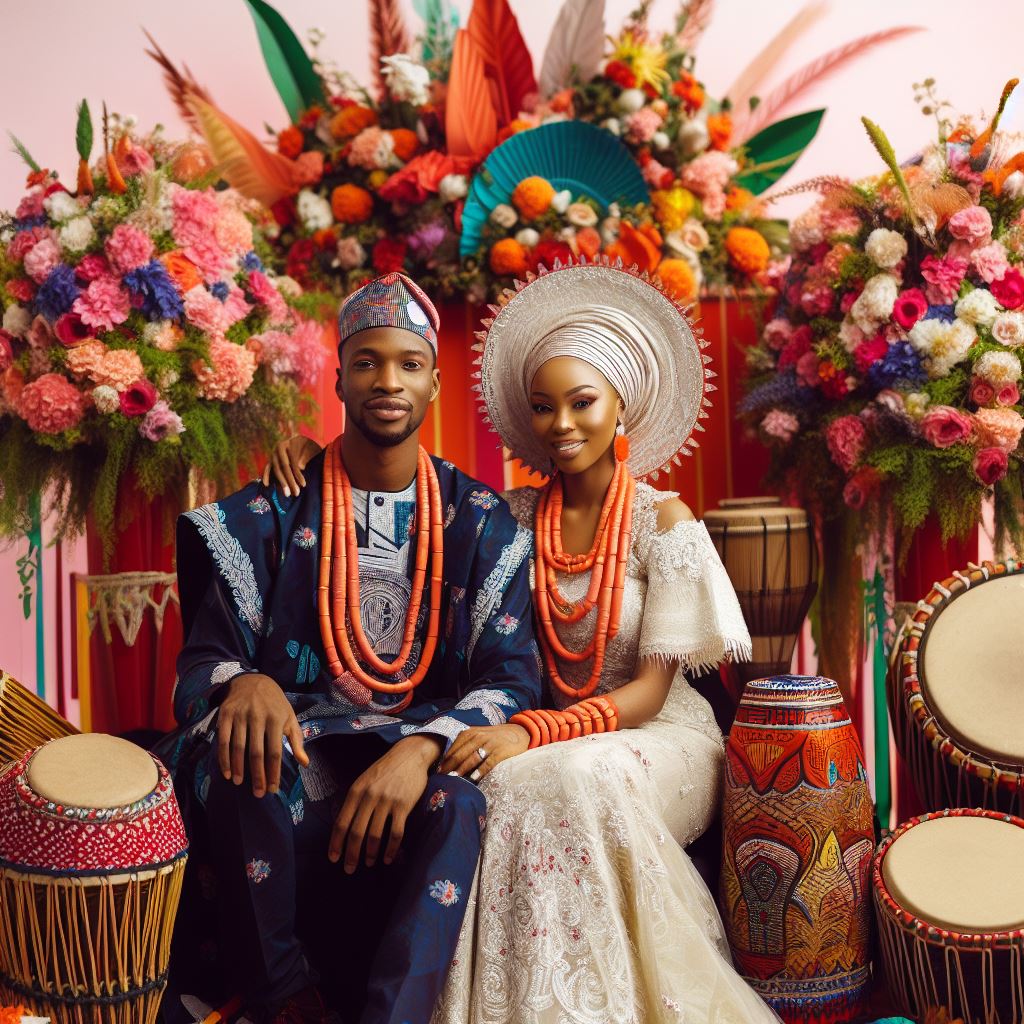
Economic Significance of Marriage in Nigeria
When examining the cultural significance of marriage in Nigeria, it is essential to delve into the economic implications that come with this institution.
Nigeria, being a patriarchal society, places significant financial obligations on the husband.
As the head of the household, he is expected to provide for his wife and children.
The economic implications of marriage in Nigeria
One economic implication of marriage in Nigeria is the bride price, also known as the “money gift.”
This custom requires the groom to compensate the bride’s family with a specific amount of money or goods.
Bride price and dowry customs and their role in economic exchanges between families
The bride price is not only a sign of appreciation but also a recognition of the bride’s value to her family.
It often serves as a financial security blanket for the bride in case of divorce or widowhood.
Dowry customs also play a role in economic exchanges between families.
The bride’s family presents gifts, usually in the form of money or assets, to the groom and his family. This practice ensures that the bride is well taken care of in her new home.
Financial responsibilities and support networks established through marriage
Furthermore, marriage creates financial responsibilities and support networks. After marriage, spouses are expected to contribute financially to the household.
This includes sharing expenses for housing, food, and other essential needs.
Marriage also establishes a support system in Nigerian society.
Newly married couples often receive financial assistance and gifts from both immediate and extended family members.
This financial support helps the couple establish themselves and navigate the challenges of starting a new life together.
In addition to family support, marriages in Nigeria often lead to business partnerships between families.
Some families invest in the couple’s business ventures or help them secure loans to start their own businesses.
Overall, the economic significance of marriage in Nigeria goes beyond the initial bride price and dowry customs.
Marriage establishes financial responsibilities, support networks, and even business partnerships. It is a complex institution that intertwines the economic well-being of families and individuals.
Read: Marriage Sermon: The Power of Forgiveness and Grace
Uncover the Details: Communication Breakdown: Techniques to Reconnect
Changing Dynamics of Marriage in Nigeria
The influence of modernity and globalization on Nigerian marriage customs
With increasing exposure to the outside world, Nigerian marriage customs have undergone significant changes.
The introduction of modern technologies and communication systems has revolutionized the way Nigerians approach marriage.
The desire for individual freedom and autonomy has prompted Nigerians to redefine traditional marriage practices.
Globalization has brought new ideas and expectations, causing a shift from arranged marriages to more love-based unions.
The impact of Western ideals and practices on traditional marriage rituals
Western ideals, such as romantic love and individual choice, have influenced the perception of Nigerian marriages.
The concept of a white wedding, borrowed from the West, has become increasingly popular in Nigeria.
Western wedding attire and customs, like exchanging rings and walking down the aisle, are now incorporated into Nigerian marriages.
Some traditional marriage rituals, like the payment of dowry, have been altered to align with Western practices.
The emergence of intercultural and interfaith marriages in Nigeria
Nigeria’s multi-ethnic and multi-religious society has led to an increase in intercultural and interfaith marriages.
Nigeria’s multi-ethnic and multi-religious society has led to an increase in intercultural and interfaith marriages.
Couples from different cultural backgrounds are now more open to embracing each other’s traditions in their marriages.
These marriages serve as a bridge between different ethnic and religious groups, fostering unity and understanding.
Intercultural and interfaith marriages contribute to the diversification and enrichment of Nigerian marriage customs.
Read: The Importance of Prayer in the Nigerian Marriage Bond
Find Out More: Customizing Marriage Wishes for Each Nigerian Tribe
Uncover the Details: Parenting Disagreements: Aligning for the Kids
You Might Also Like: Contemporary Nigerian Authors on Love & Commitment
Conclusion
This blog section dove deep into the cultural significance of marriage in Nigeria.
We explored various aspects of Nigerian marriage customs, such as the importance of family involvement and the role of traditional ceremonies.
Nigeria’s diverse cultural heritage contributes to the uniqueness of its marriage customs, showcasing a rich tapestry of traditions that have stood the test of time.
Marriage in Nigeria holds enduring importance as it is not only a union between two individuals, but a merging of families, cultures, and communities.
It serves as a foundation for societal stability and cohesion, reinforcing values and customs that have been passed down for generations.
As readers, we should appreciate and celebrate the diversity of Nigerian marriage customs.
Each ceremony, ritual, and tradition carries deep meaning and reflects the tremendous pride Nigerians have for their cultural heritage.
By embracing and understanding these customs, we can foster a greater sense of unity and appreciation for one another.
So, let us continue to learn, share, and honor the cultural significance of marriage in Nigeria.
Let us celebrate the richness of Nigerian traditions and the enduring importance they hold in shaping the lives of individuals and communities alike.
Marriage in Nigeria is truly a testament to the strength and beauty of cultural diversity.

